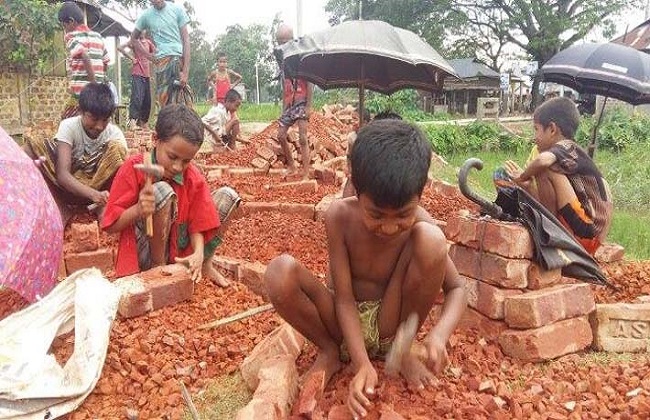
It is becoming increasingly difficult to get the Generalised System of Preference (GSP) facility back for Bangladeshi products in the US market. Even if some conditions are met, there is no possibility of getting back GSP suddenly as child labour has not been abolished here. In such a situation, the Ministry of Foreign Affairs has written to the labour and employment ministry, the commerce ministry and the women and children affairs ministry to take effective initiatives to eliminate child labour from Bangladesh.
It is needless to say the country still has the most perilous and worst form of child labour. As per the government data, about 1.3 million children are engaged in hazardous work. Child labour will have to be stopped not only to get back the GSP benefits in the United States but also enjoying the GSP Plus facility in the European Union market during the post-LDC times of Bangladesh. In this case, the ministries concerned are expected to take quick coordinated steps.
There are three ways for the state to eliminate child labour. First, we need to create social safety nets. We need to invest in social security for marginalised families. Second, education and technical training must be enhanced. Third, there must be legislation and its proper implementation. Special care must be taken so that the law does not go against children. If a child labourer is kept away from factories without taking any alternative measures, the child and its family will be suffering. The standards set by the International Labour Organization (ILO) on labour recruitment are based on four dimensions: freedom of association, the right to bargain, non-existence of child labour, and non-discriminatory employment opportunity. These must be adopted as a policy in all countries.
The main problem is that the families from which these child workers come are extremely poor. Many say that poverty is not the main problem but as long as there are opportunities to earn by sending children to work, families will also push them towards that. We do not mean that there is no such tendency at all but that there are signs that the supply of child labour decreases as poverty decreases. Children deprived of basic education grow up to become unskilled workers, resulting in lower incomes for them. Thus poverty is transmitted from one generation to another, and families continue to revolve around the vicious cycle of poverty-child labour-poverty. It is important to rescue children from dangerous situations through direct intervention and provide them with educational opportunities and appropriate rehabilitation.
If child labour is not stopped, Bangladesh will have to face complications. According to ILO Convention 138, no child under a certain age can be engaged in labour. But Bangladesh has not signed it yet. However, the government is trying to meet the conditions. This is because one has to sign the convention if one wants to get full tariff benefits in the EU market after LDC graduation. For that reason, child labour has to be eliminated very quickly. After the graduation from LDC, Bangladesh will no longer get the benefits of an LDC. Without the GSP Plus facility, Bangladesh’s main export product, readymade garments, will be under serious threat in Europe, one of our key export markets in the world. So, we have to take effective initiatives from now on. Our law does not have a strong stance to stop child labour. Many are taking advantage of this. Child labour should be stopped completely by amending the law if necessary.


